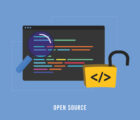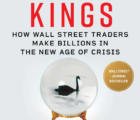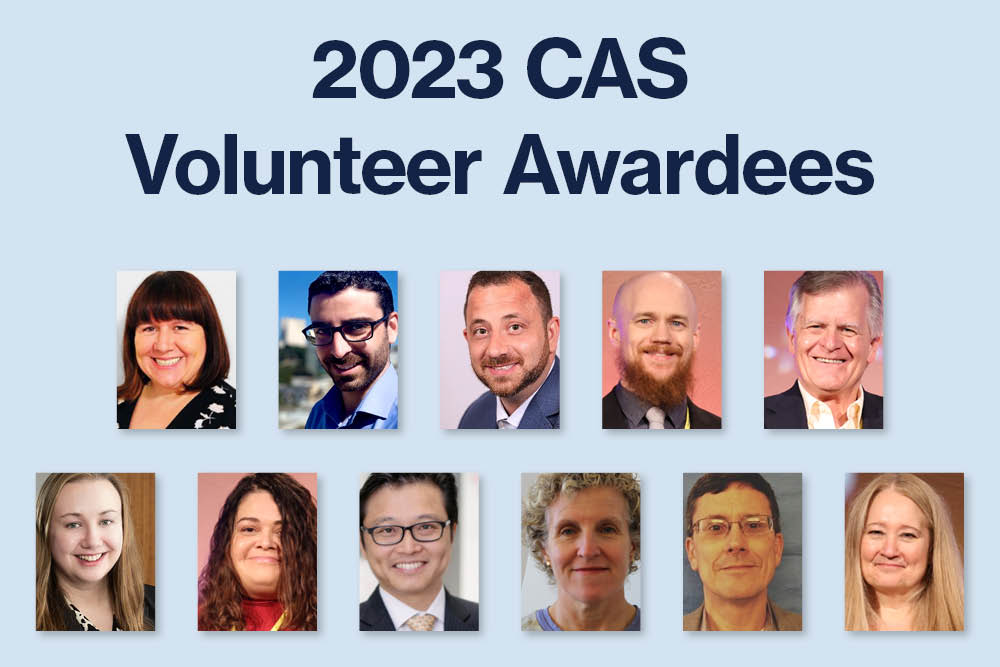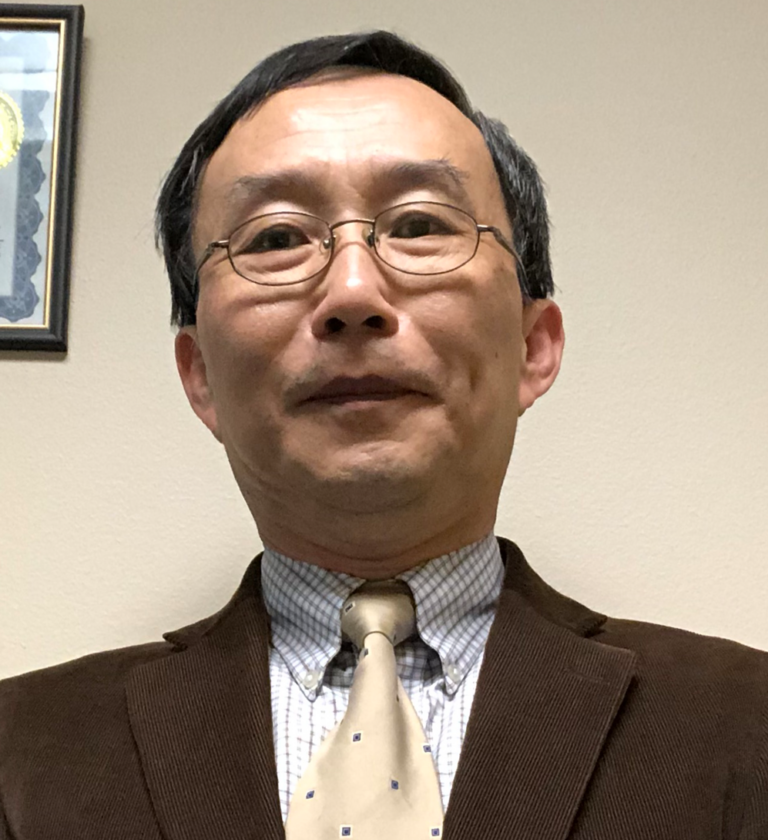
The Making Things Happen column features CAS and iCAS members who serve the associations in many capacities and enrich the volunteer experience for all.
Like many a curious thinker, Henry Cheng wonders if there is a better way.
Cheng, who earned the Certified Specialist in Predictive Analytics (CSPA) credential from The CAS Institute (iCAS) in 2018, has been actively volunteering for the CAS subsidiary since 2019.
He observed that the curriculum for CSPA Exam 3 was quite top-heavy, consisting of three CAS study notes, 11 research papers and 10 books for the required learning materials. That is a lot of material to digest for one exam.
Candidates were finding it difficult to stay motivated, complete the curriculum and take the examination. Cheng saw a need for change.
So, he suggested revising the curriculum to cut back substantially on the material, proposing to use just three books as the primary learning materials. He persuaded the iCAS Exam 3 Committee, and they decided to retain one book from the original list of learning materials and introduce two new books, thus lightening the load of study and refining it.
Cheng also worked his powers of persuasion to get permission from Bill Venables, the principal author of Modern Applied Statistics with S, allowing candidates access the book to study for the CSPA examination — and at no cost. The book that Venables and his co-authors wrote is a valuable asset to candidates. It contains an automated function in the MASS package for generalized linear model (GLM) selection that solves many past challenging problems faced by actuarial data scientists and CSPA project examination candidates.
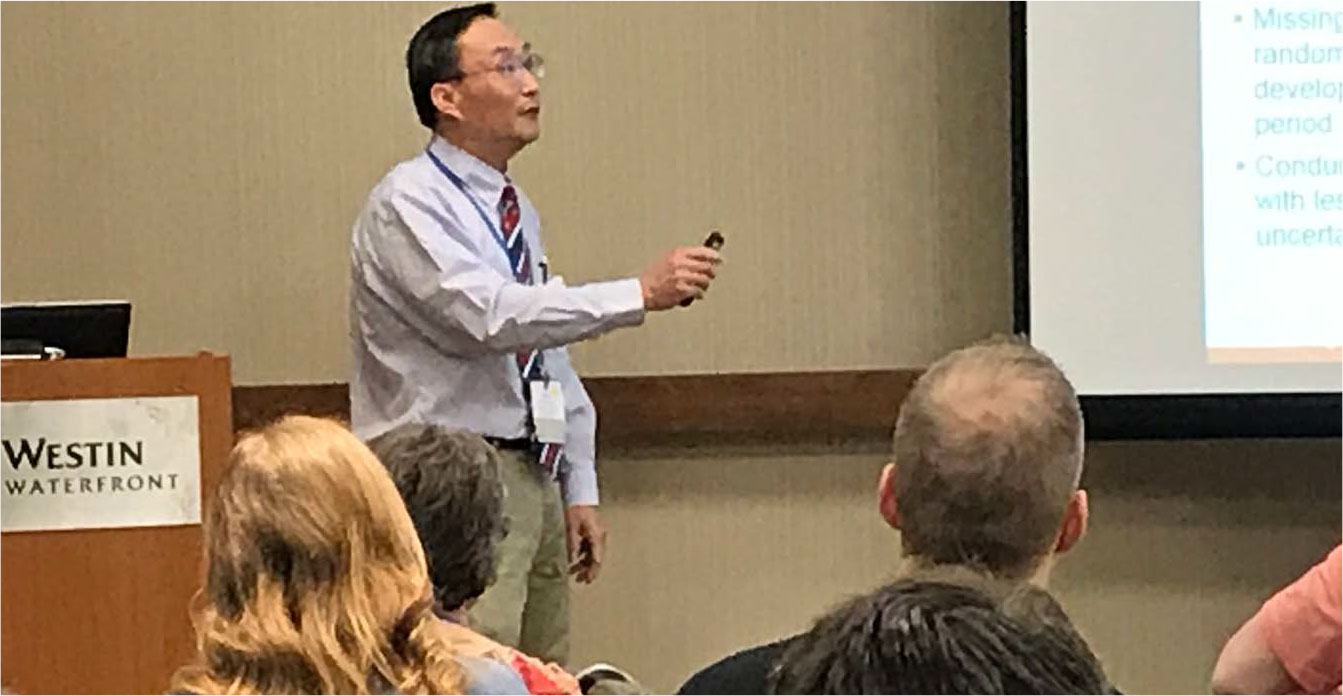
But Cheng was not finished with his CSPA Exam 3 update. He also introduced a new item to the curriculum, Modern Applied Statistics with S, that covers model selection from generalized linear models and tree-based regression models. The other new book, Computational Actuarial Science with R, introduces practical advanced ratemaking and reserving models, such as loss triangles with real datasets.
He also serves on the CSPA Project Committee, where he has mentored two candidates virtually upon their request for help.
Impressed with his work, in 2021 CAS staff invited Cheng to review all the predictive modeling components in all CAS examinations. He was also asked to join other CAS Examination task forces to draft examination questions. In 2023 he was likewise invited to join a CAS special task force for a new examination paper — a predictive analytics project. He collaborated with other volunteers to analyze interview data responses from iCAS examination candidates.
“I am proud of working in all the CAS and iCAS (CSPA) examination committees,” he said. “They were able to review and make the determination on the changes within a short period. Teamwork is the key to success,” Cheng said.
Cheng has a Ph.D. in statistics. He was formerly a high school physical education and mathematics teacher, has taught at several tertiary institutions and was an experienced actuarial mathematics curriculum coordinator.
He currently works as an actuary in the Washington state government. “I am responsible for designing, developing, training, building, testing and deploying two automated predictive modeling systems consisting of thousands of machine learning models for auto-adjudication of new claims and individual open-claim case reserving,” he said. “I hope to share my actuarial predictive modeling experience with all actuaries.”
 Cheng has definitely had an impact on the CAS and iCAS, but he is also well-known internationally for his contributions to predictive analytics. He was one of the lead scientists in modeling ecologically sustainable harvesting of the Western Rock Lobster fishery in 2000. The fishery received the world’s first Marine Stewardship Certificate (MSC) from the MSC Council in Britain and set the standard for all the world fisheries. He has received numerous national management and leadership awards internationally and, in the U.S. particularly, in optimal statistical experiment design and modeling.
Cheng has definitely had an impact on the CAS and iCAS, but he is also well-known internationally for his contributions to predictive analytics. He was one of the lead scientists in modeling ecologically sustainable harvesting of the Western Rock Lobster fishery in 2000. The fishery received the world’s first Marine Stewardship Certificate (MSC) from the MSC Council in Britain and set the standard for all the world fisheries. He has received numerous national management and leadership awards internationally and, in the U.S. particularly, in optimal statistical experiment design and modeling.
“Volunteers add value in building a better sustainable world through management based on science, science based on data and applying predictive analytics to extract the maximum information out of data,” he said. “We can learn and grow from other volunteers and CAS staff.”
Cheng volunteers for other organizations as well. For the past 10 years, he has worked as a principal investigator for several competitive federal grants with federal, state and tribal scientists and pathologists to conduct new drugs trials aimed at increasing the survival rate of salmon in the U.S. This work brings all types of experts together to investigate and improve the situation scientifically through optimal experimental design and longitudinal modeling.



